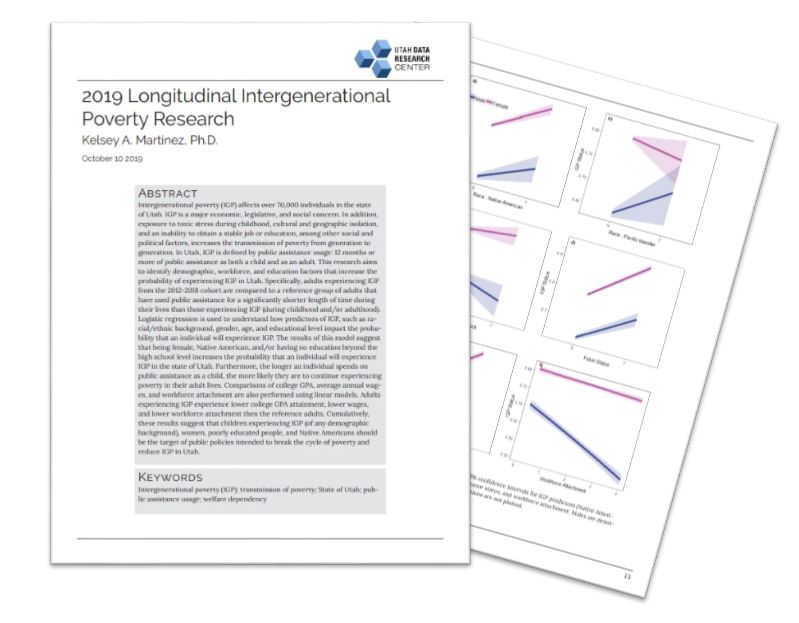2019 Longitudinal Intergenerational Poverty Research
October 24, 2019
The Utah Data Research Center (UDRC) recently released the 2019 longitudinal research on intergenerational poverty (IGP) in Utah. IGP is defined as the transmission of poverty from one generation to the next, or cyclical poverty. The research examines individuals (both adults and children) who were experiencing IGP in 2012 (2012 IGP cohort), and follows them through 2018 to understand how time has impacted their lives. Specific variables examined include: wage data, public health care use, criminal records, educational attainment, race/ethnicity, and gender.
Adults experiencing IGP were compared to a control group of adults in Utah to determine which of the examined variables increase risk of experiencing IGP in Utah. Results of this comparison indicated that individuals who are most likely to experience IGP were those with long periods of public assistance use during childhood, poorly educated females, Native Americans, and those with a criminal record. Those least likely to experience IGP were males and those with a college education. Furthermore, from 2012 - 2018, average wages of the 2012 IGP cohort increased, as did the number of adults in the cohort who were employed four quarters during a year.
To learn more, read the 2019 Longitudinal Intergenerational Poverty Research report.
